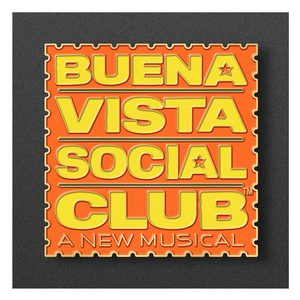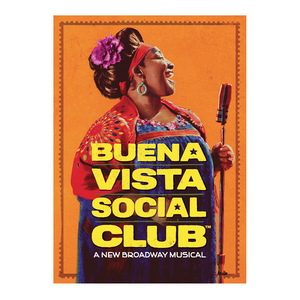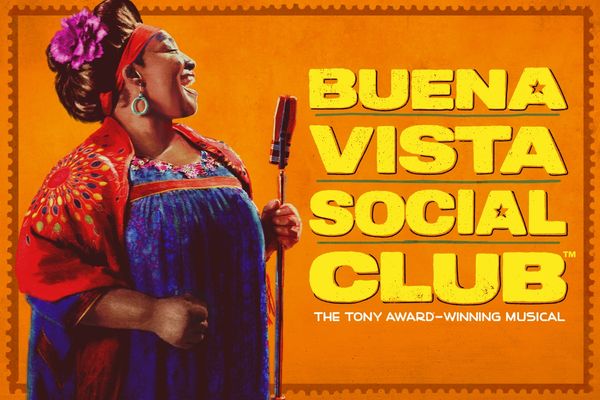Interview: BUENA VISTA SOCIAL CLUB Star Julio Monge Brings A Cuban Music Icon To Life On Broadway
2025 Best Musical Tony-nominee, Buena Vista Social Club, is playing now at Broadway's Schoenfeld Theatre.
The heart of Havana comes to life on the Broadway stage this season in the new musical, Buena Vista Social Club. In telling the tale of the eponymous landmark album, the show not only brings the soulful sounds of Cuba to thrilling life, but the music legends whose gifts galvanized the songs and stories that make up the world of the show.
Bringing an icon to life is no small feat, but in his portrayal of the legendary Compay Segundo, Julio Monge does more than impersonate- he channels. With an effortless blend of warmth, wit, and charisma, Monge captures the soul of a man who was not only a musician, but a symbol of Cuban identity, resilience, and joy.
Compay Segundo was more than a musician- he was Cuba incarnate. A former tobacco farmer and cigar roller, he would go on to become one of the great architects of son cubano, fusing rhythm, poetry, and invention (including his own seven-string armónico guitar) into a sound that traveled the world. With his sly wit and soulful voice, Compay became a late-in-life global icon through the Buena Vista Social Club.
Monge steps into this legacy with grace and vitality, imbuing the role with humor and wisdom that invokes the spirit of a trusted partriarch; delivering an icon hidden in plain sight whose hilarious observations are mere hints at the genius contained beneath his signature panama hat.
In this conversation, the acclaimed actor, director, and choreographer reflects on embodying a cultural titan, the power of humor and memory, and the deep joy of keeping Compay Segundo's music and spirit alive onstage.
You're so lucky to get to perform this incredible material every night, and inside of that, you get to portray one of the great musicians of all-time. What has the experience been like bringing Buena Vista and Compay to Broadway?
As you can imagine, these big productions, it's a lot of work. You mostly feel like it's work, but with this particular production, it just stopped feeling like work. You feel like you're doing a service to the community. It feels like you're carrying something bigger than just working as an actor. Just like you reacted, that's the reaction we're getting from most people every night. And that's different for me. That doesn't feel normal, and that's very moving. I feel like I'm on a mission at this point. It just feels larger than a show.
What first drew you to this role, and how did you become involved with this production initially?
I worked with our director, Saheem Ali. When they were doing initial workshops for this show, he called me for one of the early readings. He said, "We’re going to read the script we have at the moment. We want to hear it with actors. We’re not doing any music yet. Can you read Compay for us?" And I was like, oh my goodness, of course. Immediately after I hung up, I started watching Compay interviews and seeing him perform on video. I was familiar with Buena Vista because when that came out, I bought the CD and I played it so much I wore it out. It was my personal soundtrack.
So it must've been thrilling for you to get that phone call.
Well, it was amazing, but it was very intimidating because I know Compay is a gigantic figure. I was intimidated by that. But then, when I started to observe him in his interviews, especially, and I looked at his personality and what makes him so special, his wit, his sense of humor, the knowledge of the music, he’s just... I mean, the years he had already spent doing this music gave him such authority. And I decided, I’m not going to imitate him. I’m just going to try to capture what he’s about. That’s why I went for it. And apparently they liked it very much. They moved on to a big workshop of the show with the music. That’s when they said, "Okay, we want to hear you sing." The music director wanted to hear me sing, and I passed that test. Then they sent me to a guitar teacher to see my aptitude with that instrument, and I passed that test too. I got the part. We did a workshop for five weeks in New York City, and then a few months later, we opened at the Atlantic.
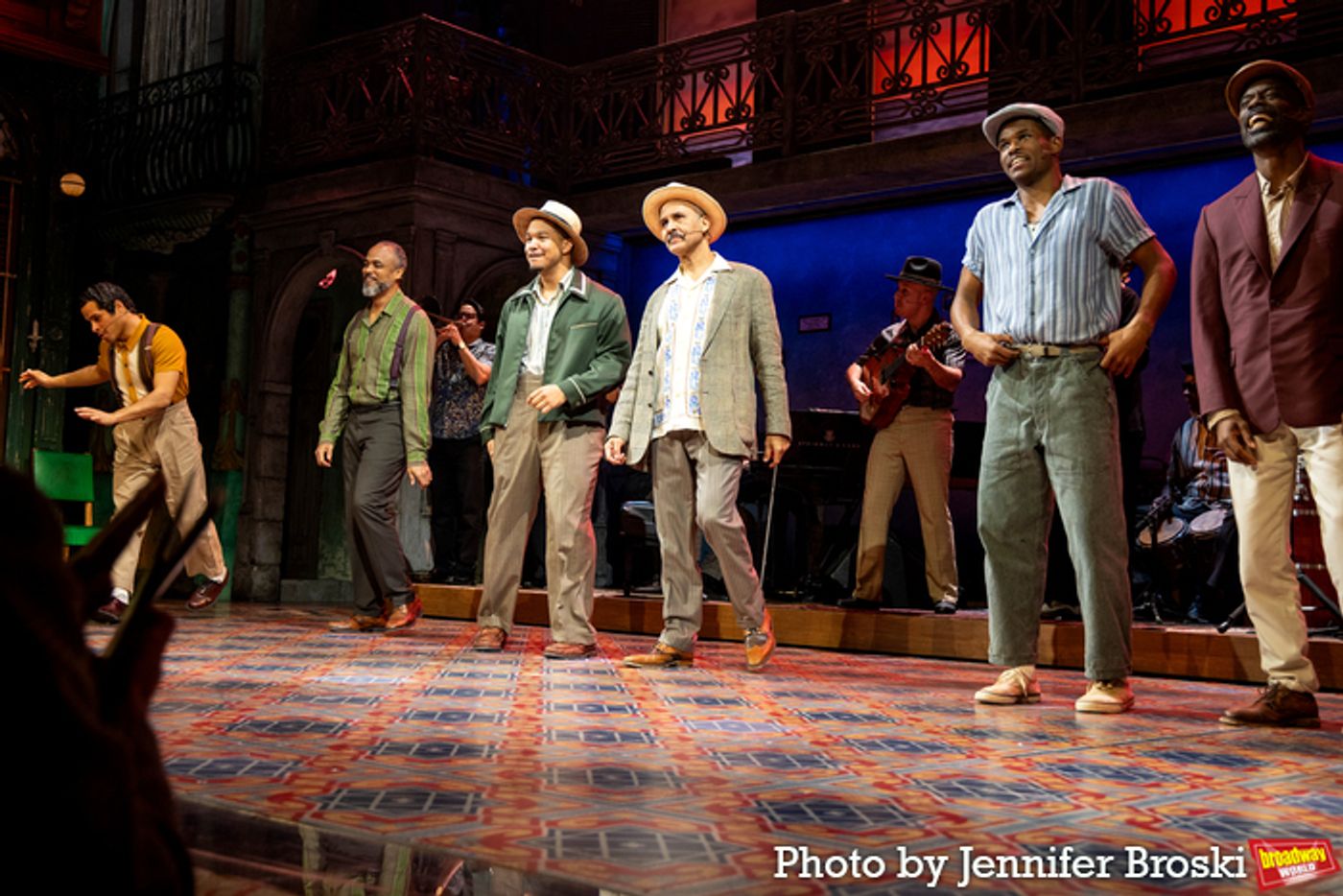
Did you have any experience with the guitar at all?
Never. Never ever.
Oh my gosh. So what has that been like? Is this the first time you've been asked to pick up an instrument for a role?
Completely. I used to sing this kind of music as a kid, when I was a teenager, I was in a duet with this beautiful lady singer. She was three years older than me, and we toured all over the island in Puerto Rico. She would play the guitar. I remember she offered to teach me, and I was so dumb, I didn’t do it. I’ve always regretted that. I should’ve learned to play. But I was singing harmony for her. So here, I immediately started training, learning the guitar. That was very nerve-wracking because I had never played it. It’s very hard on the hands. I even developed tendonitis at one point in my wrist, and I thought, oh my goodness, I won’t even be able to hold the guitar. I had to wear a brace for a while. That’s how hard I was practicing. I was determined I was going to learn at least the chords I needed. At the Atlantic, I used to sing a whole song by myself on stage, playing them. And I learned it. I got through it. It was wonderful. Then they changed the song, and now I play with the tres player [Renesito Avich].
The band at Buena Vista Social Club is unlike anything on Broadway and the players are not to be believed. What has it been like for you to try to fold yourself into that dynamic, and to make it appear as authentic as possible?
Well, you know, it's the best gift for an actor to have the source immediately around you. I even picked up some of their personalities to play Compay, because most of them are Cubans from Cuba, and they have that cadence, that wonderful, expressive personality that Compay also carries. All I have to do is listen, observe, and take it in.
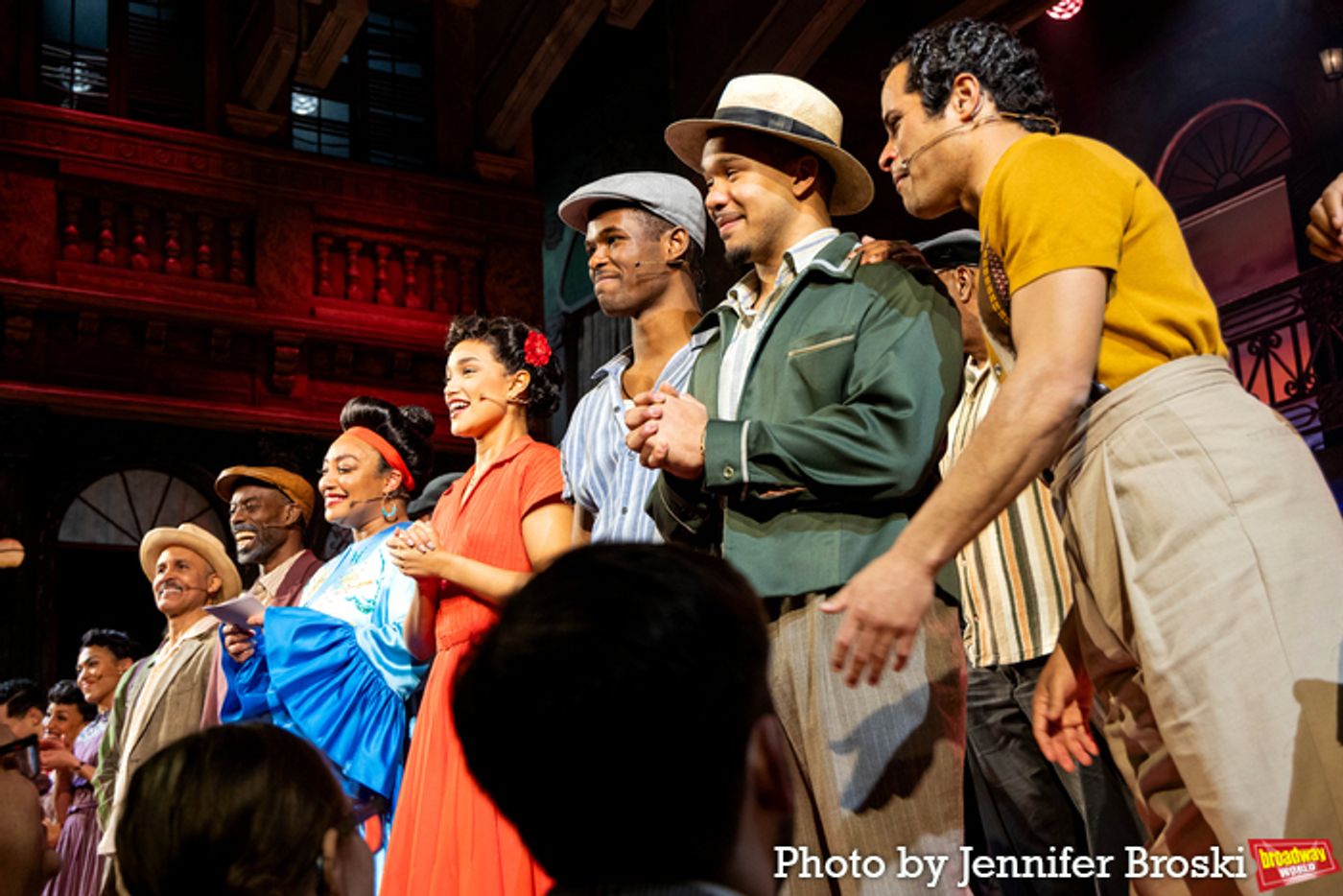
The other defining element of Compay is his sense of humor. You are dropping some of the best one-liners on Broadway right now. The character feels so familiar to the audience in such a palpable way. Were there people in your family, or people you’ve known, outside of the man himself, who inspired this performance?
You have no idea how many people have told me, “You are my uncle.” Uncle comes up a lot. And to be honest, I grew up with this. The personality of the Cuban is very similar to Puerto Ricans. We’re very connected. We are linked, ancestrally, DNA, historically, musically, and in our idiosyncrasies as well. This is my family. That’s what I tapped into. When I watch Compay, I’m also watching my family, my uncles, my grandfathers, my neighbors. That’s how they talked. It was family. It was in me. I knew what that was.
There’s alse the historical context of the show to discuss. How did exploring that moment in Cuba’s history and understanding what Company's experience would have been at that time inform the man we see on stage?
He lived through so many historical moments in Cuba and yet some people describe him as a Caribbean Buddha. Because through it all, he maintained his integrity, his sense of humor, his positive view of life. His optimism was never tarnished. And by the time he was rediscovered, whether it was a second, third, or fourth chance, with the Buena Vista Social Club album that made him world-famous, his artistry was intact. I mean, we could go on and on about this man. When he passed away, Cuba gave him a national burial, as if he were a national hero. They sang the anthem. The military carried him. Everyone followed his funeral procession.
Those are tremendous shoes to fill. That must have been daunting. He means a great deal to a lot of people who are coming to see this show.
Exactly. But you know, [Buena Vista Social Club guitarist] David Oquendo, he played with Compay in Cuba. He’s a direct source. I would ask him all kinds of questions. He was the first one who said, “Julio, sometimes I cannot play because I’m seeing him through you. You’re channeling him. How are you doing that?” That was the biggest compliment. And then of course, all these wonderful musicians who play this music have come to see us, and they’ve told me the same thing. But the thing that gave me the most confidence, his family came. They came to the Atlantic, and then they came to our opening here on Broadway. And they said, “All you need now is his favorite blue suit, I’m seeing him. Thank you. Thank you for portraying him with such respect and dignity. We were really afraid they were going to make a cartoon out of him. And you did not. You played him with love. We are so grateful to you.” You cannot imagine how moving that was, and how rewarding.



